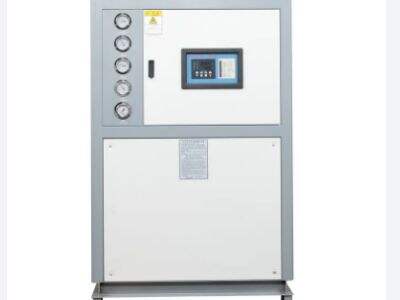This (relatively) efficient chiller operation is one of the keys to good vulcanization control in an industrial setting. Yide who is an outstanding industrial manufacturer understands the importance of chiller performance to ensure the good condition of vulcanization quality. If sizing of the chiller performance is done correctly, the entire vulcanization process can be optimized for greater efficiency and assurance of a high quality end-product. Now, we explore the significance of gas cooler efficiency and its impact on vulcanization QC.
Significance of Chiller to Perform Efficiently
Chilling systems are a valuable part of any industrial process where cold water supply is required, such as vulcanization. During vulcanization, it is essential that the chiller heats continuously and steadily. Unstable temperature control results in poor vulcanization, and the quality of vulcanized goods would be reduced accordingly. In that sense, investing in top quality chillers and making sure they work to the best of their capacities is essential for vulcanization success.
The Quality of Vulcanization and The Evaluation of The Chiller Performance
Monitoring of chiller performance is scheduled on a regular basis in order to trace any early warning signals of possible disturbances in the vulcanization process. By tracking KPIs such as temperature control, energy efficiency and maintenance data, industrial manufacturers can make sure that their chillers are operating at the optimum levels. The better the evaluation of water chiller performance the more the planned maintenance done on the chiller and earlier detection of any faults thereby averting costly downtime and loss due to product spoilage.
Investigating the Relationship between Chiller Performance and Vulcanisation Quality Control
Relationships between performance of chillers and control of vulcanization quality are undeniable. Bad chiller operation can cause uneven temperature across the material that cause vulcanization uniformity. This can also be disadvantageous in terms of the strength and endurance of the resultant article. With a systems approach to improving air cooled chiller performance, industrial manufacturers can ensure more exacting temperature control, and thus, improved vulcanization and finished product quality.
Improving Chiller Performance as a Means of Taking Vulcanization
Enhancing chiller efficiency directly impacts improved vulcanization quality. Through the use of energy efficient chillers equipped with precision temperature control systems, manufacturers are able to fine-tune their vulcanization process for improved products. The improved operation of the chiller helps ensure more uniform vulcanization, less wastage and better overall product quality. This, in return ensures customer satisfaction and enhances a company's brand as one that demands high-quality goods.
The Role of Chiller Performance
The performance of chillers is important for the efficiency and effectiveness of the industry process, such as vulcanization quality control. A properly functioning chiller allows for accurate temperature control, which is essential to obtain the vulcanization results. By focusing on chiller assessment and using a superior-grade industrial chiller, industrial businesses can ensure the best quality control in their vulcanization methods. Yide recognizes that the long-term consistency of the best vulcanization quality can only be achieved with an efficient chiller with which it will continue to provide powerful product innovations for the industry.
Table of Contents
- Significance of Chiller to Perform Efficiently
- The Quality of Vulcanization and The Evaluation of The Chiller Performance
- Investigating the Relationship between Chiller Performance and Vulcanisation Quality Control
- Improving Chiller Performance as a Means of Taking Vulcanization
- The Role of Chiller Performance


